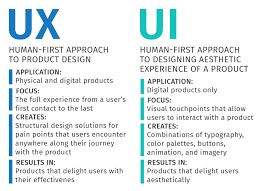The Power of Search Engines
Search engines have revolutionized the way we access information on the internet. With just a few keystrokes, we can find answers to our questions, discover new content, and connect with a vast array of resources.
One of the key benefits of search engines is their ability to index and organize an immense amount of data from across the web. Through complex algorithms and sophisticated technology, search engines like Google, Bing, and Yahoo can quickly retrieve relevant results based on a user’s query.
Search engine optimization (SEO) has become a crucial aspect of digital marketing, as businesses strive to improve their visibility in search engine results pages. By optimizing their websites with relevant keywords, high-quality content, and user-friendly design, companies can attract more organic traffic and reach a wider audience.
Search engines also play a vital role in shaping our online experience. They help us navigate the vast expanse of the internet by providing us with targeted results that match our interests and preferences. Whether we are looking for news articles, product reviews, or educational resources, search engines serve as our gateway to the digital world.
As search engines continue to evolve and innovate, they are becoming more personalized and intuitive. Features like voice search, predictive text input, and image recognition are transforming the way we interact with search engines, making them more accessible and user-friendly than ever before.
In conclusion, search engines have become indispensable tools in our daily lives. They empower us to explore new ideas, connect with others, and access information at our fingertips. As technology continues to advance, the power of search engines will only grow stronger, shaping the future of how we discover and engage with content online.
5 Advantages of Search Engines: Unlocking Information, Enhancing Learning, and Boosting Business
- Instant access to a wealth of information
- Facilitates research and learning on a wide range of topics
- Helps users discover new websites and resources
- Enables businesses to reach their target audience effectively
- Saves time by providing quick and relevant search results
7 Drawbacks of Search Engines: Privacy, Bias, and Beyond
- 1. Privacy concerns related to tracking user data for targeted advertising
- 2. Risk of biased search results based on algorithms and paid placements
- 3. Over-reliance on search engines may lead to information overload and decreased critical thinking skills
- 4. Search engine monopolies can limit competition and innovation in the digital space
- 5. Difficulty in filtering out misinformation and fake news from search results
- 6. Constant changes in search engine algorithms can impact website rankings unpredictably
- 7. Search engines may prioritize popular or commercial content over more relevant but less well-known sources
Instant access to a wealth of information
Search engines provide instant access to a wealth of information, enabling users to quickly find answers to their questions, explore diverse perspectives, and discover a vast array of resources with just a few clicks. This unparalleled access to knowledge empowers individuals to stay informed, make well-informed decisions, and deepen their understanding on a wide range of topics, ultimately fostering continuous learning and growth in today’s fast-paced digital age.
Facilitates research and learning on a wide range of topics
Search engines play a crucial role in facilitating research and learning on a wide range of topics. By providing quick and easy access to a vast repository of information, search engines empower users to delve into various subjects, explore new ideas, and deepen their knowledge base. Whether seeking academic resources, conducting market research, or simply satisfying curiosity, the ability to search for relevant content efficiently enhances the learning experience and promotes continuous education across diverse fields of interest.
Helps users discover new websites and resources
Search engines play a crucial role in helping users discover new websites and resources on the internet. By indexing and organizing a vast amount of online content, search engines make it easier for individuals to explore a wide range of websites, articles, and resources that they may not have encountered otherwise. This capability not only enriches the user’s online experience but also enables them to access valuable information and diverse perspectives that contribute to their knowledge and understanding of various topics.
Enables businesses to reach their target audience effectively
Search engines play a crucial role in enabling businesses to reach their target audience effectively. By leveraging search engine optimization (SEO) strategies, businesses can optimize their online presence to appear prominently in search engine results when potential customers are actively looking for products or services they offer. This targeted visibility not only increases brand awareness but also drives qualified traffic to their websites, ultimately leading to higher conversion rates and business growth. The precision and efficiency of search engines in connecting businesses with their desired audience make them invaluable tools for modern marketing strategies.
Saves time by providing quick and relevant search results
Search engines offer a valuable pro by saving time through their ability to deliver quick and relevant search results. With just a few clicks, users can access a wealth of information tailored to their queries, eliminating the need to sift through irrelevant content. This efficiency not only streamlines the search process but also enables individuals to find the answers they seek promptly, ultimately enhancing productivity and facilitating seamless information retrieval.
1. Privacy concerns related to tracking user data for targeted advertising
Privacy concerns related to tracking user data for targeted advertising have become a significant con of search engines. As users browse the internet and conduct searches, search engines collect vast amounts of data about their online behavior, preferences, and interests. This data is often used to create detailed profiles of users, which are then leveraged for targeted advertising purposes. While personalized ads can enhance the user experience by showing relevant content, many individuals are wary of the potential invasion of their privacy and the risk of their personal information being exploited for commercial gain. The lack of transparency in how user data is collected, stored, and shared by search engines raises valid concerns about data privacy and security in the digital age.
2. Risk of biased search results based on algorithms and paid placements
One significant con of search engines is the risk of biased search results influenced by algorithms and paid placements. While search engines aim to provide relevant and accurate information to users, there is a potential for manipulation in the ranking of search results. Algorithms used by search engines may prioritize certain websites or content based on factors such as popularity or advertising revenue, leading to biased outcomes that may not always reflect the most reliable or unbiased information available. Additionally, paid placements can influence the visibility of certain websites or products, potentially skewing search results in favor of those who can afford to pay for better placement. This bias in search results can impact the credibility and trustworthiness of the information users encounter online.
3. Over-reliance on search engines may lead to information overload and decreased critical thinking skills
Over-reliance on search engines can have detrimental effects on individuals by contributing to information overload and diminishing critical thinking skills. When users constantly turn to search engines for answers, they may become overwhelmed with the sheer volume of information available, making it challenging to discern credible sources from unreliable ones. This reliance on search engines as a primary source of information can also hinder the development of critical thinking skills, as users may passively accept search results without questioning or analyzing the validity of the content. It is essential for individuals to strike a balance between utilizing search engines for information retrieval and engaging in independent research and critical evaluation to foster a more well-rounded approach to knowledge acquisition.
4. Search engine monopolies can limit competition and innovation in the digital space
Search engine monopolies can have detrimental effects on competition and innovation in the digital space. When a single search engine dominates the market, it can stifle diversity and limit opportunities for smaller competitors to thrive. This lack of competition may lead to reduced incentives for innovation, as the dominant player may become complacent in improving its services. Additionally, a search engine monopoly could potentially control the flow of information and influence user behavior, raising concerns about data privacy and transparency. Overall, the concentration of power in the hands of a few search engine giants can hinder progress and hinder a level playing field for new entrants in the digital landscape.
5. Difficulty in filtering out misinformation and fake news from search results
One significant con of search engines is the difficulty in filtering out misinformation and fake news from search results. With the vast amount of information available online, it can be challenging for search algorithms to discern between credible sources and misleading content. This issue has become increasingly prevalent in today’s digital age, where false information can spread rapidly and influence public perception. Users may unknowingly come across inaccurate or biased information when conducting searches, leading to confusion and misinformation. As search engines strive to improve their algorithms and combat fake news, the ongoing battle to ensure the accuracy and reliability of search results remains a pressing concern for both users and content creators alike.
6. Constant changes in search engine algorithms can impact website rankings unpredictably
Constant changes in search engine algorithms can pose a significant challenge for website owners and digital marketers. The unpredictability of these algorithm updates can lead to fluctuations in website rankings, making it difficult to maintain consistent visibility in search results. As search engines strive to enhance user experience and combat spammy tactics, websites may suddenly see a drop in traffic or a decline in organic search performance due to algorithmic changes. Adapting to these shifts requires staying informed about industry trends, implementing best practices, and continuously optimizing content to align with the evolving criteria set by search engines.
7. Search engines may prioritize popular or commercial content over more relevant but less well-known sources
One significant drawback of search engines is their tendency to prioritize popular or commercial content over potentially more relevant but lesser-known sources. This can lead to a lack of diversity in search results, favoring established websites or businesses with higher visibility and resources. As a result, users may miss out on valuable information from niche or independent sources that could offer unique perspectives or insights on a given topic. The dominance of popular or commercial content in search engine rankings can limit the variety of viewpoints available to users and potentially hinder the discovery of lesser-known yet valuable resources.




